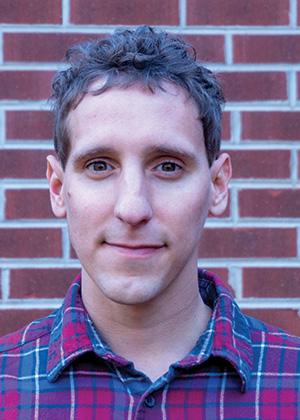
Kevin De Angeli
Graduate student, Computational Sciences and Engineering Division
Ph.D. student, Data Science and Engineering, University of Tennessee, Knoxville (Bredesen Center)
Hometown: Buenos Aires, Argentina
What are you working on at ORNL?
My research focuses on developing and improving machine learning models to classify cancer pathology reports. Information extraction from clinical reports is an expensive, time-consuming task that is performed by experts. By building robust deep learning models, we hope to expand our understanding of cancer trends across the U.S.
What would you like to do in your career?
I want to continue developing and applying data science tools to help communities and create more opportunities for future generations. Throughout my years in academia, I have learned the importance of good mentorship, so I would also like to mentor the future generation of scientists.
Why did you choose a career in science?
I have always enjoyed mathematics and computer science. By pursuing data science, I am able to work at the intersection of both fields while solving real-world problems that can potentially have an impact in society.
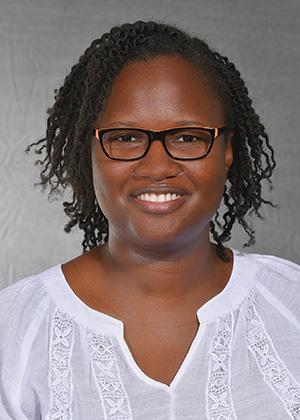
Joni Hall
Graduate student, Electrification and Energy Infrastructure Division
Ph.D. Student, Energy Science and Engineering, University of Tennessee, Knoxville (Bredesen Center)
Hometown: Kingston, Jamaica
What are you working on at ORNL?
My work focuses on strategies that enable residential electricity customers to automate decision-making related to devices ranging from HVAC systems to electric vehicles, in a manner that benefits them and the grid. Homes are no longer just consumers of electricity, but also resources with adjustable demand and supply capabilities.
What would you like to do in your career?
Our ability to harness energy has been transformative, but it has also created challenges. I would like to contribute to finding solutions which overcome the challenges created by our current energy system, helping to move it toward being sustainable while helping to equip the next generation of problem solvers.
Why did you choose a career in science?
There are many things I find interesting, and what they have in common is they provide opportunities to find solutions. Science provides a framework and tools for exploration and problem solving. Solving real-world problems brings me joy, so I found science a natural fit.

Vasudevan Iyer
Postdoc, Center for Nanophase Materials Sciences
Ph.D., Mechanical Engineering, Purdue University
Hometown: Coimbatore, India
What are you working on at ORNL?
I’m studying nanomaterials such as 2D semiconductors, nanoantennas, perovskites and plasmonic structures using laser spectroscopy and electron microscopy. My interest lies in characterization of these materials at high spatial and temporal resolution to uncover novel physics. These materials have applications in the energy, communications and computing sectors.
What would you like to do in your career?
I want to continue my research in the field of nanotechnology either as a scientist or a faculty member. I’m excited to utilize my skills for solving the energy and climate challenges our generation faces.
Why did you choose a career in science?
I am always fascinated to experience technology, be it the first time I sat on a plane or when we got our first computer at home. I used to ask my mother what I could invent that would make her proud. I naturally gravitated towards science in high school and was fortunate to get into a good college.
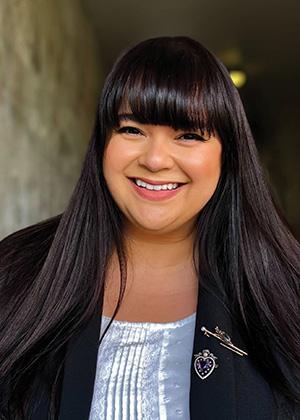
Yessica Alejandra Nelson
Graduate student, Neutron Scattering Division
Ph.D. Student, Inorganic Chemistry, UCLA
Hometown: Jalisco, Mexico
What are you working on at ORNL?
We design boron clusters at the atomic level, subject them to high pressures and use neutrons and X-rays to elucidate phase changes induced by the applied pressures. We hope to accelerate the design of solid-state inorganic electrolytes with superior ionic conductivity at room temperature for a new generation of all-solid-state batteries.
What would you like to do in your career?
As a scientist, I want to advance chemistry through an interdisciplinary and multicultural approach to solving critical energy and environmental problems while making knowledge accessible to all.
Why did you choose a career in science?
I witnessed how a lack of education and resources led to inadequate farming and sanitation practices affecting my hometown’s environmental sustainability. I knew the only way to impart change was through science and education. I feel fortunate to spend my time immersed in problem solving and helping the next generation of scientists.
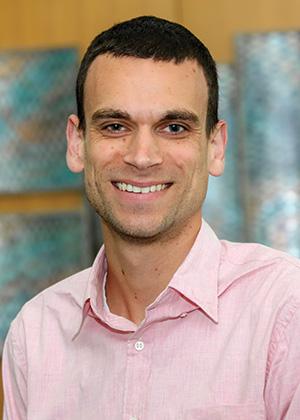
Darren Driscoll
Postdoc, Chemical Sciences Division
Ph.D., Chemistry, Virginia Tech
Hometown: Haymarket, Virginia
What are you working on at ORNL?
My current research focuses on understanding local and mesoscale structure during the extraction of rare earth elements. I utilize a combination of synchrotron-based X-ray and neutron techniques to describe rare earth element local coordination and aggregation within extraction mediums in an effort to tailor novel material development for increased separation efficiency.
What would you like to do in your career?
I want to be a world expert in structural chemistry combining high-energy X-ray and neutron techniques to drive the next generation of energy science discoveries. I aspire to join other scientific experts in collaboration to solve complex scientific challenges impacting our modern society.
Why did you choose a career in science?
I like to think the career chooses the person. I enjoy the daily challenges and the overall successes that define me as a researcher.
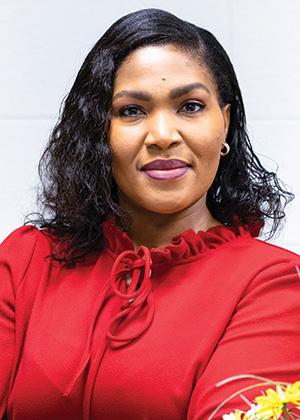
Omy Tonia Ogbughalu
Postdoc, Biosciences Division
Ph.D., Systems Genetics and Biogeochemistry, University of South Australia
Hometown: Brisbane, Australia; Enugu, Nigeria
What are you working on at ORNL?
My research at ORNL is in systems genetics. Using a suite of molecular and computational tools, I characterize shifts in microbial — self-replicating plasmids, viruses, bacteria, fungi and algae — community structure, which may impact terrestrial and aquatic ecosystem function, to establish how urbanization alters the biogeochemical processes controlled by varied microbial interactions.
What would you like to do in your career?
I would like to develop novel biotechnological tools to predict biogeochemical function and to identify when microbes such as viruses intercept, infect or alter the metabolic activities of other microbial groups. These tools would be able to identify the networking strategies activated by different microbial groups in response to physical, mechanical or chemical perturbations.
Why did you choose a career in science?
I grew up being fascinated by ubiquitous, yet invisible, microbes. Microorganisms are the center of our existence and of medical, agricultural and environmental science. I believe that microbes hold the blueprint to our survival. They can make or mar us. So, for a sustainable environment, I choose to work with them.


